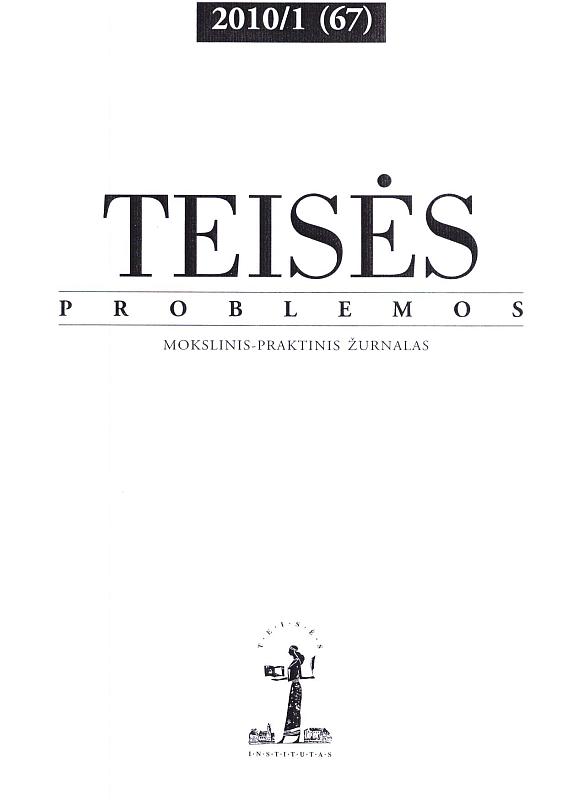Galingųjų nusikaltimai: tarpdalykinis atvejis antikriminologijai
Crimes of the Powerful: An Interdisciplinary Case for Anti-Criminology
Author(s): Vincenzo RuggieroSubject(s): Criminology
Published by: Lietuvos teisės institutas
Summary/Abstract: In this article the author argues that the study of the crimes of the powerful may help re-vive critical criminological analyses and discourses. This specific arena of research, in his view, may lead us to experience anti-criminological moments and to elaborate some anti-criminological notions. By anti-criminological moments and notions he simply means those small revolutions in our disciplinary paradigm, those ruptures which throw the discipline into a temporary crisis, before being at times slowly absorbed, thus enriching the discipline itself. He regards differential association, labelling theory and feminist criminology as the major creators of such moments and ruptures. There is a general feeling, particularly in the Anglo-Saxon world, that criminology is experiencing unprecedented developments. This, it is suggested, is driven by a number of forces, most obviously growing concerns about security and crime control (Smith, 2004). Such issues tend to be mainly associated with the presence in Europe of the ‘other’, namely the foreigner, the recent migrant and the asylum seeker. It could be argued, however, that these recent developments are also a consequence of the growing belief that technical, administrative, environmental, architectural or policing strategies are the only ones capable of responding to crime. In other words, we may suggest that criminology is gaining unprecedented respectability because officials and policymakers have abandoned broader social concerns and adopted the view that the problem of crime arises from the mere lack of its institutional control. To authors mind, anti-criminology should abandon the search for omnipresent social conditions, for an ‘original sin’, in brief, for a primary, universal cause of criminal behaviour. How could we do otherwise? If we, for example, identify variables such as financial success, the pursuit of status, or the accumulation of resources as the primary causes of crime, we end up expanding the criminal label to cover all behaviour. Success and financial gain, in fact, are also the main motivations of legitimate behaviour. On the contrary, if we focus on variables such as lack, deficiency, deficit (of opportunities, socialisation or resources), we end up excluding from the criminal rubric all those illegitimate practices caused by abundance, wealth and excess. The study of affluence and its effects, of its criminogenic nature, may be among the tasks of anti-criminology. This leads author to the other area of potential analytical development. After examining a number of ‘crimes of the elite’, critical criminologists might be tempted to conclude that the excess of resources and opportunities, rather than the lack of both, is the major cause of criminal activity. This conclusion may derive from subjective evaluation of the overall social damage caused by the crimes of the powerful when compared with that caused by the crimes of the powerless. But, against the backdrop of what the author have termed the etiology of the contraries, one should note that both the deficiency and the abundance of legitimate opportunities may lead to criminal activity. Anti-criminology, however, may analyze the selective processes that are in place whereby only some of those who are involved in such activity are also exposed to social stigma and institutional penalization.
Journal: Teisės problemos
- Issue Year: 2010
- Issue No: 67 (1)
- Page Range: 6-25
- Page Count: 20
- Language: Lithuanian

